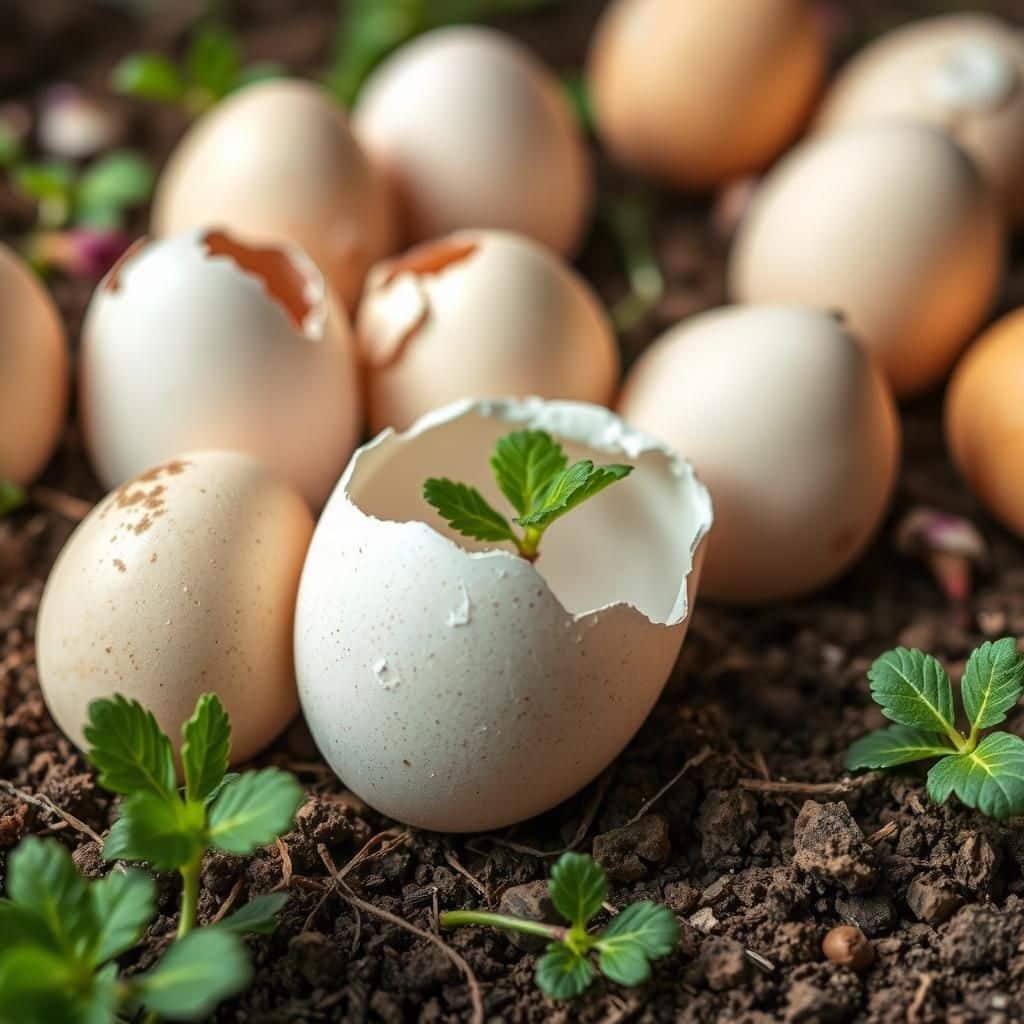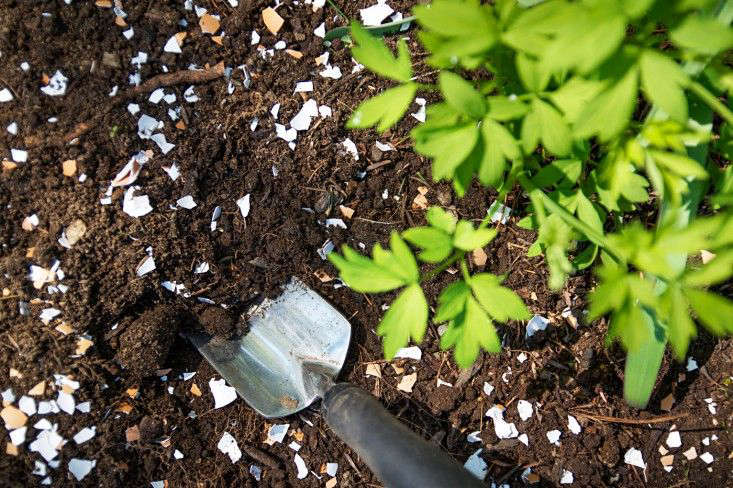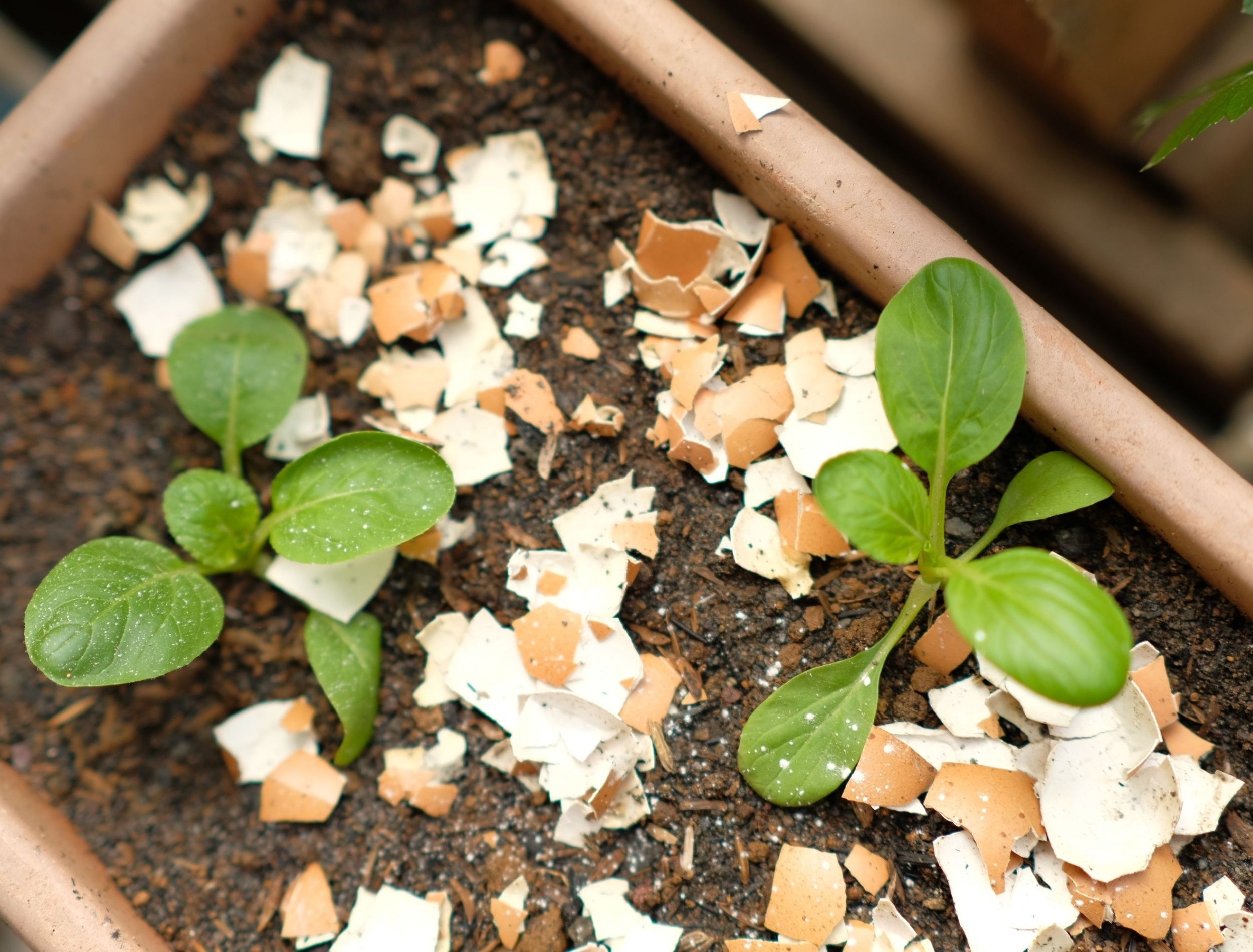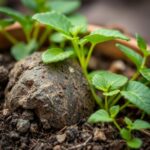Are Eggshells Good for a Garden? Discover Their Benefits and Uses!

Eggshells, often discarded as kitchen waste, hold significant potential for gardens, providing numerous benefits that can enhance soil health and plant growth. Rich in calcium and essential minerals, these natural additions can help prevent blossom end rot in tomatoes and peppers, while also improving soil structure. As gardeners seek sustainable practices, utilizing eggshells presents an eco-friendly way to recycle waste and enrich the garden. This article explores the various advantages of incorporating eggshells into gardening routines, offering practical tips and innovative uses to maximize their benefits. Discover how these humble remnants can transform your gardening experience!
Are Eggshells Beneficial for Your Garden?
Eggshells can be an excellent addition to your garden, providing a natural source of calcium that is vital for the healthy growth of plants. When eggshells decompose, they slowly release calcium carbonate, which helps to strengthen cell walls in plants and can prevent issues such as blossom end rot in tomatoes and peppers. In addition to calcium, eggshells can improve soil structure and drainage when broken down and added to compost. They are also believed to deter pests like slugs and snails, making them a multifaceted resource for gardeners looking to enrich their garden naturally.
Calcium and Soil Health
Eggshells are rich in calcium, a crucial nutrient for plant development. When incorporated into the soil, they help maintain a balanced pH level, promoting better nutrient absorption. This nutrient is particularly important for crops like tomatoes and cucumbers, which are prone to blossom end rot if they do not receive enough calcium. As the eggshells break down, they release calcium carbonate, enriching the soil and fostering a healthier growing environment.
Composting Benefits
Adding crushed eggshells to your compost pile can significantly enhance its nutrient profile. They not only add calcium but also help to pay attention to the carbon-to-nitrogen ratio, which is vital for effective composting. As the eggshells decompose, they create a rich compost that can be used to fertilize plants. Moreover, composting eggshells is an eco-friendly practice that minimizes waste while boosting soil fertility.
Pest Deterrent
Crushed eggshells can act as an effective natural pest deterrent. When sprinkled around plants, they create a sharp barrier that deters soft-bodied pests like slugs and snails. These creatures are often harmful to gardens as they feed on tender plant foliage. The rough texture of the eggshells can discourage them from crossing over, protecting your plants from potential damage.
Enhancing Soil Structure
Incorporating eggshells into garden soil can improve its structure. The coarse texture of crushed eggshells can help to aerate the soil, improving drainage while preventing compaction. This is particularly beneficial in clay-heavy soils, where drainage is a common issue. By improving soil structure, eggshells encourage better root growth and overall plant health.
How to Prepare Eggshells for the Garden
To enable eggshells to be most effective in your garden, proper preparation is key. First, rinse the eggshells to remove any residues and prevent odors. Next, let them dry completely before crushing them into small pieces, ideally the size of gravel. This increases their surface area, allowing for quicker breakdown in the soil or compost pile. Finally, you can either mix them directly into the garden soil or add them to your compost, depending on your gardening needs.
| Benefit | Description |
|---|---|
| Calcium Source | Provides essential nutrient for plant growth. |
| Soil Improvement | Enhances soil structure and drainage. |
| Pest Control | Acts as a barrier against soft-bodied pests. |
| Composting | Boosts nutrient content in compost. |
| Environmental Friendly | Minimizes waste and promotes sustainable gardening practices. |
Can I put eggshells directly in my garden?

Yes, you can put eggshells directly in your garden, and doing so can provide several benefits to your soil and plants. Eggshells are a great source of calcium, which is essential for plant growth and overall health. When added to the soil, they break down over time, slowly releasing this valuable nutrient. Additionally, crushed eggshells can help deter pests like slugs and snails, adding another layer of benefit to your gardening efforts. However, there are some considerations to keep in mind for optimal results.
Benefits of Using Eggshells in Your Garden
Using eggshells can greatly enhance your garden's health. Here are the primary benefits:
- Source of Calcium: Eggshells provide essential calcium, which strengthens cell walls in plants.
- Pest Deterrent: Crushed eggshells can deter soft-bodied pests like slugs and snails.
- Soil Improvement: Incorporating eggshells into the soil can improve its overall structure and aeration.
How to Prepare Eggshells for the Garden
Proper preparation of eggshells is essential for maximizing their benefits. Here’s a simple process:
- Wash the Eggshells: Rinse eggshells thoroughly to remove any egg residue that may attract pests.
- Dry Completely: Allow the shells to dry fully to prevent mold growth before storing or using.
- Crush Into Small Pieces: Crushing the shells into finer pieces or powder helps speed up decomposition and nutrient release.
Ways to Use Eggshells in Your Garden
There are numerous ways to incorporate eggshells into your gardening routine effectively. Consider these options:
- Direct Soil Addition: Mix crushed shells directly into the soil before planting to enrich it.
- Seedling Preparation: Use halves of eggshells as biodegradable seedling pots.
- Composting: Add crushed eggshells to your compost pile to enhance nutrient content.
Potential Drawbacks of Using Eggshells
While there are many benefits, there are also some potential drawbacks to consider:
See also:
- Slow Decomposition: Eggshells take time to break down, meaning immediate benefits are minimal.
- pH Neutrality: They can slightly raise soil pH, which may not be suitable for all plants.
- Contaminants: If not cleaned properly, they might carry bacteria that can be detrimental to plants.
Recommended Plants for Eggshell Application
Certain plants particularly benefit from the addition of eggshells. Here are a few suggestions:
- Tomatoes: Calcium prevents blossom end rot in tomatoes, making eggshells a great addition.
- Peppers: Like tomatoes, peppers benefit from increased calcium levels in the soil.
- Squash and Cucumbers: These plants thrive with improved soil structure provided by eggshells.
Which plants like egg shells?

Eggshells are a fantastic addition to your garden's ecosystem, providing valuable nutrients to various plants. They are primarily composed of calcium carbonate, which is essential for plant growth, helping to strengthen cell walls and contribute to overall plant health. Here are some plants that particularly benefit from the addition of eggshells to the soil:
1. Tomatoes
Tomatoes thrive with the presence of eggshells, as they are prone to calcium deficiency which can lead to blossom end rot. Adding crushed eggshells to their soil helps provide the necessary calcium, improving the fruit's quality and yield.
- Enhances fruit quality.
- Reduces risk of blossom end rot.
- Improves soil structure and drainage.
2. Peppers
Much like tomatoes, bell peppers and hot peppers also benefit from eggshells. The calcium promotes sturdy growth and better fruit set, ensuring a bountiful harvest.
- Improves overall plant resilience.
- Increases fruit production and size.
- Helps in reducing plant stress.
3. Eggplants
Eggplants are another member of the nightshade family that thrive with the inclusion of crushed eggshells in their soil. Calcium helps to prevent common diseases and promotes healthier growth.
- Assists in disease prevention.
- Encourages strong root development.
- Contributes to better nutrient absorption.
4. Cucumbers
Cucumbers benefit greatly from the addition of eggshells, as calcium helps prevent issues like blossom end rot, and promotes overall vigor in the plants. Adding eggshells enhances their growth and yield significantly.
- Supports healthy vine growth.
- Encourages higher fruit yield.
- Improves soil aeration and drainage.
5. Roses
Roses love well-draining soil and benefit from the mineral addition from eggshells. Calcium contributes to stronger stems and healthier blooms, leading to a more vibrant garden.
- Enhances blossom production.
- Strengthens stem structure.
- Improves soil fertility and texture.
What plants don't like eggshells in the garden?
Eggshells are often used in gardens as a natural fertilizer and to deter pests due to their high calcium content. However, not all plants benefit from the addition of eggshells to the soil. Certain plants may react negatively to the changes in soil composition and pH levels that eggshells can cause. Here are some plants that generally do not like eggshells in the garden:
1. Acid-Loving Plants
Many plants prefer acidic soil conditions, and the addition of eggshells can increase the soil's alkalinity, making it unsuitable for them.
- Blueberries: These require acidic soil with a pH between 4.5 and 5.5.
- Azaleas: They thrive in acidic environments, typically below 6.0 pH.
- Rhododendrons: Also prefer acidic soil, which can be disrupted by eggshells.
2. Potatoes
Potatoes can be sensitive to the mineral composition of the soil. Adding eggshells may lead to overly alkaline conditions, which can hinder their growth.
- Effects on Growth: Alkaline soil may lead to nutrient deficiencies.
- Potential for Disease: Changes in soil pH can increase susceptibility to diseases.
- Harvest Quality: Poor soil conditions can affect the size and quality of the potatoes.
3. Spinach
Spinach thrives in slightly acidic to neutral soil. The introduction of eggshells may alter the soil's pH level, impacting the plant's growth.
See also:
- Optimal pH Range: Spinach prefers a pH of around 6.0 to 7.0.
- Nutrient Uptake: A sudden change in pH can affect spinach's ability to absorb essential nutrients.
- Overall Yield: Altered soil conditions can lead to a decreased harvest.
4. Strawberries
Strawberries are another plant that prefers slightly acidic soil. Adding eggshells can increase pH levels, making the soil less hospitable.
- Flavor Impact: Soil pH can affect the sweetness and flavor profile of strawberries.
- Fruit Quality: Poor soil conditions can lead to smaller, less attractive fruit.
- Pest Vulnerability: Healthy pH levels are important for crop resilience against pests.
5. Fiddle Leaf Fig
While commonly grown indoors, Fiddle Leaf Figs do not fare well with eggshells. Their preference for well-draining, slightly acidic soil makes eggshells a poor choice.
- Drainage Issues: Eggshells may create compaction, affecting drainage.
- Pest Attraction: Changes in soil texture can draw pests closer to the roots.
- Overall Plant Health: Unfavorable conditions can lead to leaf drop and plant stress.
Are egg shells good for tomato plants?

Eggshells can be beneficial for tomato plants as they provide essential nutrients and can improve soil quality. Here are some details regarding their use:
Eggshells are primarily composed of calcium carbonate, which is a vital nutrient for plants. Calcium helps to strengthen cell walls and is essential for the overall development of plants. Here are some specific advantages of using eggshells:
- Calcium Supply: Tomato plants require calcium to avoid physiological disorders such as blossom end rot.
- Soil Improvement: Crushing eggshells and adding them to the soil can enhance soil structure and drainage.
- Pest Deterrent: The sharp edges of crushed eggshells can deter certain pests such as slugs and snails.
By adding eggshells to the soil, gardeners can promote healthier plants and potentially increase yield.
Benefits of Eggshells for Tomato Plants
Eggshells provide several significant benefits that can help tomato plants thrive. The calcium in eggshells is crucial in preventing nutrient deficiencies. Furthermore, they can improve the soil structure, which allows for better water retention and drainage.
- Provides Nutrients: As they decompose, eggshells slowly release calcium into the soil.
- Enhances Soil Texture: They can improve aeration and drainage in heavy soils.
- Cost-Effective Fertilizer: Using kitchen waste reduces the need to buy chemical fertilizers.
How to Prepare Eggshells for Use
To maximize the benefits of eggshells, preparing them properly is essential. Start by rinsing them to remove any residual egg white or yolk, as these can attract pests. After rinsing, allow them to dry completely.
- Clean: Rinse the eggshells thoroughly to eliminate any potential odors.
- Crush or Grind: Break the shells into small pieces or grind them into a powder to allow for faster decomposition.
- Add to Soil: Mix the crushed shells into the soil or sprinkle them on top of the soil around the tomato plants.
Potential Risks of Using Eggshells
While eggshells have numerous benefits, there are a few potential risks to consider. If not prepared properly, they can attract pests or introduce pathogens into the garden.
- Attracting Pests: If leftover egg residue is present, it may attract animals like rodents.
- Slow Decomposition: If not crushed finely, larger chunks can take a long time to break down.
- Limited Nutrient Release: Too few eggshells may not provide sufficient calcium for high-demand crops like tomatoes.
When to Use Eggshells in the Garden
Timing is crucial when adding eggshells to the garden. They work best when incorporated into the soil before planting or sprinkled around the plants during their growth phases.
- Pre-Planting: Incorporate crushed eggshells into the soil for early-season planting.
- During Growth: Add them around existing tomato plants to provide a supplementary calcium source.
- Post-Harvest: You can also add eggshells in the off-season to improve soil for the next growing cycle.
Other Uses of Eggshells in Gardening
Eggshells can be used in various ways beyond just supporting tomato plants. They contribute to overall garden health and can be a useful addition to your gardening practices.
- Compost Addition: Incorporate eggshells into compost to boost calcium levels.
- Seed Starters: Use eggshell halves as biodegradable seed starters.
- Organic Pest Control: Sprinkle crushed eggshells around other plants to deter pests.
Questions from Our Readers
Are eggshells good for a garden?
Yes, eggshells are beneficial for a garden. They can provide a source of calcium, which is essential for plant growth. When eggshells decompose, they release nutrients into the soil, helping to improve its structure and fertility.
How can I use eggshells in my garden?
You can use eggshells in several ways, such as crushing them and mixing them into the soil or sprinkling them around plants as a natural pest deterrent. They can also be added to compost piles to enhance the nutrient content.
See also:
Do eggshells help with pests in the garden?
Yes, eggshells can help deter certain pests, such as slugs and snails. When crushed and spread around plants, the sharp edges can create a barrier that is unpleasant for these creatures, thus helping to protect your garden.
How many eggshells should I use for my garden?
The amount of eggshells to use depends on the size of your garden and the specific plants you are growing. Generally, a few crushed eggshells per square foot of soil can provide an adequate source of calcium without overwhelming the soil.

If you want to read more articles like Are Eggshells Good for a Garden? Discover Their Benefits and Uses!, we recommend you check out our Compost category.
Leave a Reply

Related Articles